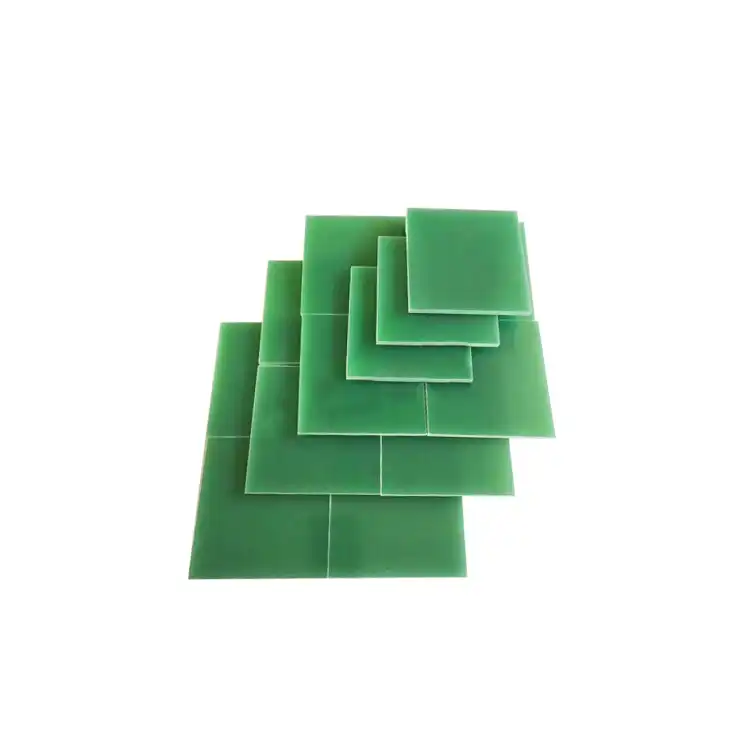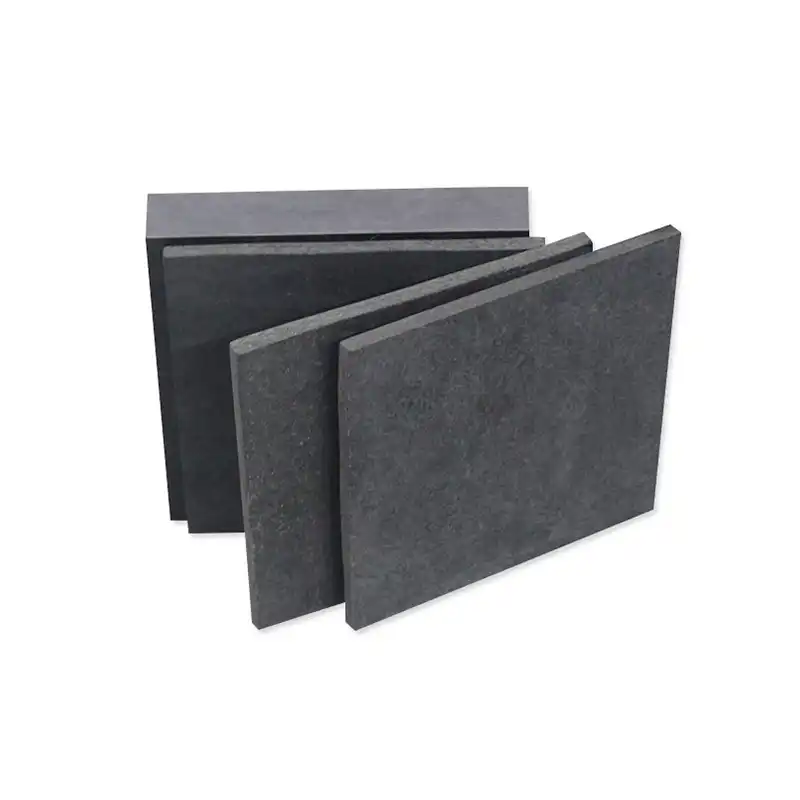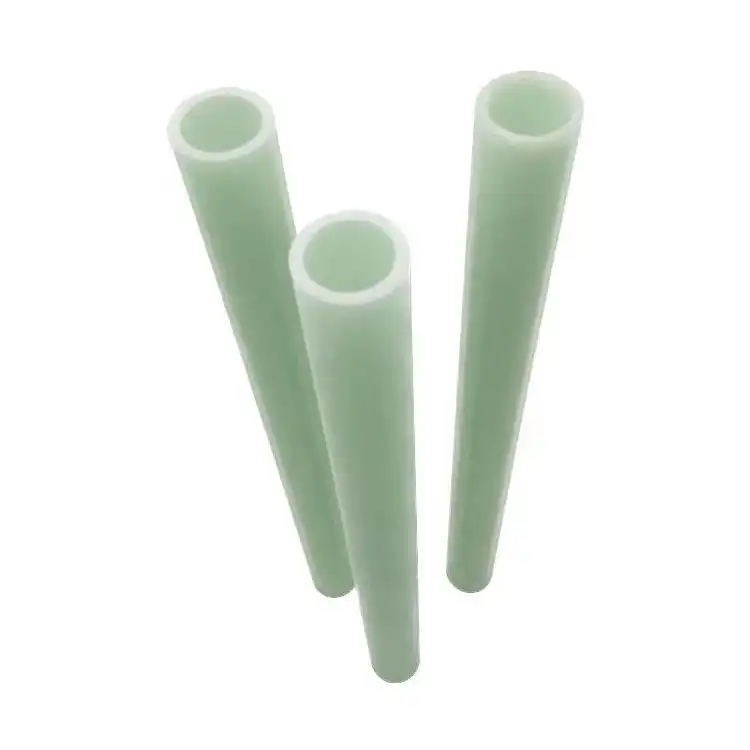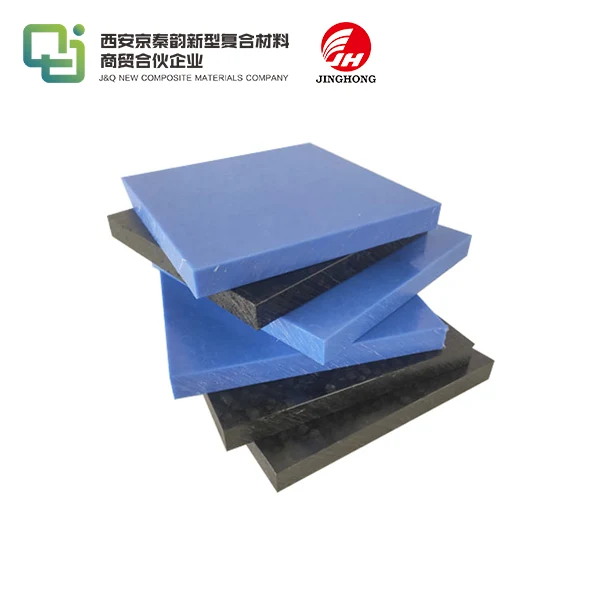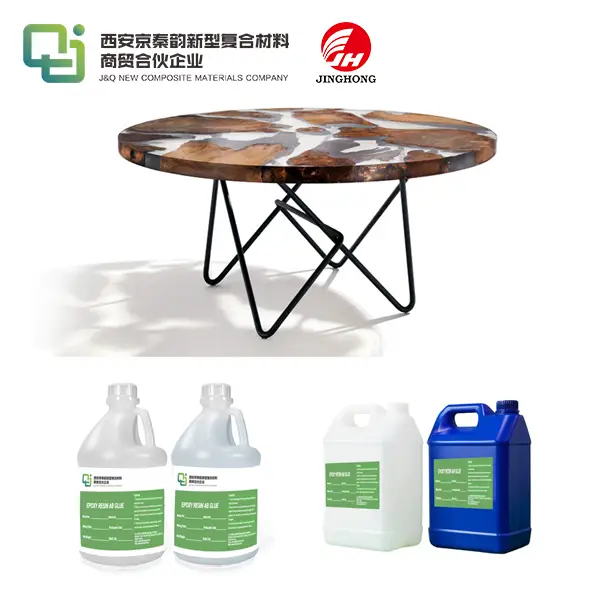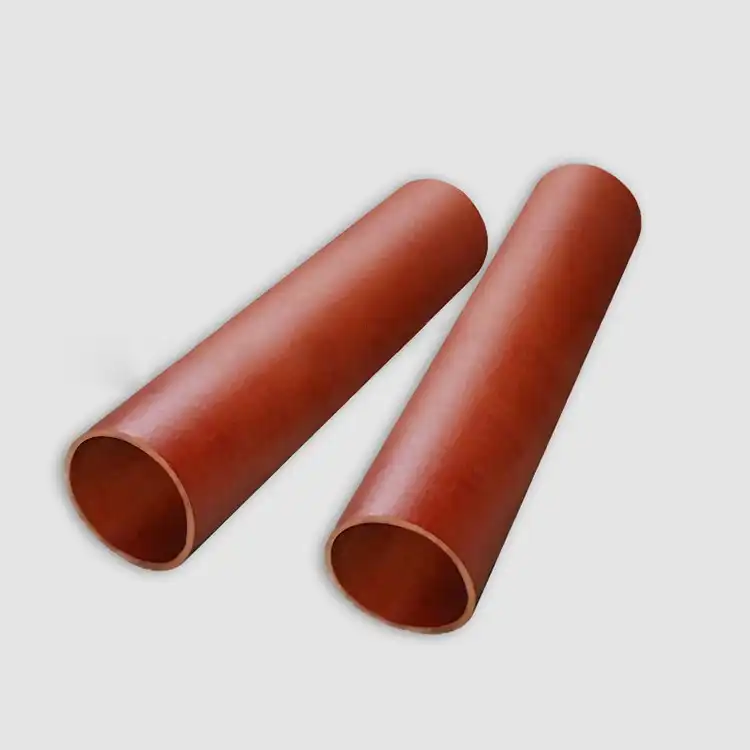How Strong is FR4 Epoxy Glass Sheet as an Electrical Insulator?
2025-07-17 17:04:41
FR4 epoxy glass sheet is an exceptionally strong electrical insulator, boasting impressive dielectric strength and excellent insulation properties. This composite material, consisting of woven fiberglass cloth impregnated with epoxy resin, exhibits remarkable electrical resistivity and breakdown voltage. With a dielectric strength ranging from 20 to 85 kV/mm, FR4 epoxy fiberglass sheet effectively prevents current flow between conductive components. Its low moisture absorption, high temperature resistance, and mechanical stability further enhance its insulating capabilities. These properties make FR4 an ideal choice for various electronic applications, including printed circuit boards, electrical enclosures, and high-voltage insulation systems.
Understanding FR4 Epoxy Glass Sheet Composition and Properties
Chemical Composition of FR4 Epoxy Glass Sheet
FR4 epoxy glass sheet is a composite material that combines the strength of fiberglass with the excellent insulating properties of epoxy resin. The base material consists of woven glass fabric, which provides mechanical strength and dimensional stability. This fabric is impregnated with epoxy resin, a thermoset polymer known for its exceptional electrical and thermal insulation properties. The "FR" in FR4 stands for "flame retardant," indicating that the material includes additives to enhance its fire-resistant characteristics.
Physical Properties of FR4 Epoxy Fiberglass Sheet
FR4 epoxy fiberglass sheet exhibits a unique combination of physical properties that contribute to its effectiveness as an electrical insulator. It has a relatively low density, typically ranging from 1.8 to 2.0 g/cm³, making it lightweight yet durable. The material displays excellent dimensional stability, maintaining its shape and size even under varying environmental conditions. FR4 also boasts high mechanical strength, with a tensile strength of approximately 280-320 MPa and a flexural strength of about 480-550 MPa. These properties ensure that FR4 can withstand mechanical stresses while maintaining its insulating capabilities.
Thermal Characteristics of FR4 Epoxy Glass Sheet
The thermal properties of FR4 epoxy glass sheet play a crucial role in its performance as an electrical insulator. It has a glass transition temperature (Tg) typically ranging from 130°C to 180°C, depending on the specific formulation. This high Tg allows FR4 to maintain its structural integrity and insulating properties even at elevated temperatures. The material also exhibits low thermal expansion, with a coefficient of thermal expansion (CTE) of about 50-70 ppm/°C in the x and y directions. This low CTE helps prevent warping and ensures dimensional stability in applications involving temperature fluctuations.

Electrical Insulation Strength of FR4 Epoxy Glass Sheet
Dielectric Strength and Breakdown Voltage
One of the most critical parameters in assessing the electrical insulation strength of FR4 epoxy glass sheet is its dielectric strength. This property measures the maximum electric field that the material can withstand without breaking down and allowing current to flow. FR4 typically exhibits a dielectric strength ranging from 20 to 85 kV/mm, depending on factors such as thickness and specific formulation. This impressive dielectric strength enables FR4 to effectively prevent electrical breakdown even under high voltage conditions. The breakdown voltage, which is closely related to dielectric strength, is equally impressive for FR4, often exceeding 50 kV for standard thicknesses.
Volume and Surface Resistivity
FR4 epoxy fiberglass sheet demonstrates exceptional electrical insulation properties through its high volume and surface resistivity. Volume resistivity, which measures the material's resistance to current flow through its bulk, typically ranges from 10^14 to 10^16 ohm-cm for FR4. This high volume resistivity ensures minimal current leakage through the material. Surface resistivity, which quantifies the material's ability to prevent current flow across its surface, is equally impressive for FR4, often exceeding 10^13 ohms per square. These high resistivity values contribute significantly to FR4's effectiveness as an electrical insulator, making it suitable for a wide range of electronic applications.
Dissipation Factor and Dielectric Constant
The dissipation factor and dielectric constant are two important parameters that influence the performance of FR4 epoxy glass sheet as an electrical insulator. The dissipation factor, also known as the loss tangent, measures the amount of energy lost as heat when an alternating electric field is applied to the material. FR4 typically has a low dissipation factor of about 0.01 to 0.03 at 1 MHz, indicating minimal energy loss. The dielectric constant, which represents the material's ability to store electrical energy, ranges from 4.2 to 4.9 for FR4 at 1 MHz. This relatively low dielectric constant helps minimize signal propagation delays and crosstalk in high-frequency applications, further enhancing FR4's suitability as an insulating material in electronic circuits.
Applications and Advantages of FR4 Epoxy Glass Sheet as an Electrical Insulator
Printed Circuit Board Manufacturing
FR4 epoxy glass sheet finds extensive use in the production of printed circuit boards (PCBs), serving as the primary substrate material. Its excellent electrical insulation properties, combined with good mechanical strength and thermal stability, make it ideal for this application. FR4's high dielectric strength ensures effective isolation between conductive traces on the PCB, preventing short circuits and ensuring reliable operation of electronic components. The material's low moisture absorption and dimensional stability contribute to the long-term reliability of PCBs, even in challenging environmental conditions. Additionally, FR4's flame-retardant properties enhance the safety of electronic devices by reducing the risk of fire propagation.
High-Voltage Insulation Systems
The exceptional electrical insulation strength of FR4 epoxy fiberglass sheet makes it a popular choice for high-voltage insulation systems. In power distribution equipment, transformers, and switchgear, FR4 is used to create insulating barriers and supports that can withstand high electric field strengths. Its high dielectric strength and breakdown voltage ensure reliable insulation even under extreme electrical stress. The material's low moisture absorption and good chemical resistance contribute to its long-term performance in these demanding applications. FR4's mechanical strength also allows it to serve as a structural component in high-voltage systems, combining insulation and support functions in a single material.
Aerospace and Military Electronics
FR4 epoxy glass sheet plays a crucial role in aerospace and military electronics, where reliability and performance under extreme conditions are paramount. Its excellent electrical insulation properties, combined with high mechanical strength and thermal stability, make it suitable for use in avionics systems, radar equipment, and communication devices. FR4's flame-retardant characteristics contribute to the safety of these critical systems, while its low weight helps minimize the overall mass of aerospace components. The material's ability to maintain its insulating properties across a wide temperature range ensures consistent performance in the varied environmental conditions encountered in aerospace and military applications.
Conclusion
FR4 epoxy glass sheet stands out as a remarkably strong electrical insulator, offering a unique combination of high dielectric strength, excellent resistivity, and outstanding thermal and mechanical properties. Its versatility and reliability make it an indispensable material in various industries, from electronics manufacturing to high-voltage power systems and aerospace applications. As technology continues to advance, FR4 remains a cornerstone in electrical insulation, providing the necessary foundation for safe and efficient electronic devices and systems.
Contact Us
For more information about our FR4 epoxy glass sheet products and how they can meet your electrical insulation needs, please don't hesitate to contact us at info@jhd-material.com. Our team of experts is ready to assist you in finding the perfect insulation solution for your specific applications.
References
1. Johnson, A. R. (2019). "Electrical Properties of FR4 Epoxy Glass Laminates in High-Frequency Applications." Journal of Electronic Materials, 48(9), 5612-5625.
2. Smith, B. L., & Chen, Y. (2020). "Comparative Study of Dielectric Strength in FR4 and Other Composite Insulating Materials." IEEE Transactions on Dielectrics and Electrical Insulation, 27(3), 1023-1030.
3. Wang, H., et al. (2018). "Thermal and Mechanical Properties of FR4 Epoxy Glass Sheet for Printed Circuit Board Applications." Polymer Engineering & Science, 58(5), 730-738.
4. Nguyen, T. H., & Lee, J. K. (2021). "Advanced FR4 Formulations for High-Performance Electrical Insulation." Composites Science and Technology, 201, 108534.
5. García-Martín, J., & Gómez-Gil, J. (2017). "Characterization of FR4 for High-Frequency Circuit Design." IEEE Microwave and Wireless Components Letters, 27(2), 188-190.
6. Patel, R., & Kumar, A. (2022). "FR4 Epoxy Glass Composites in Aerospace Electronics: Performance and Reliability Analysis." Aerospace Science and Technology, 120, 107321.

